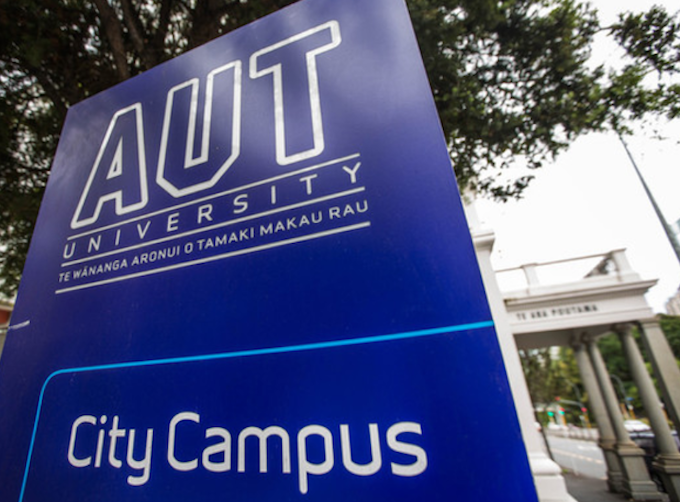
By RNZ News
A senior academic staff member at the Auckland University of Technology wants the vice-chancellor to resign following a scathing report into bullying.
The independent review heard more than 200 complaints of bullying and found evidence of sexual harassment by eight former staff.
It said some employees had been so severely affected they had been forced to take stress or sick leave, and had cried during interviews.
- READ MORE: Review finds bullying, past sexual harassment at Auckland University of Technology
- The full Davenport report
- AUT University’s #MeToo moment
- LISTEN TO RNZ MORNING REPORT: ‘You can’t build a better system when the foundations of it might be rotten’ – Duration (4:29
The independent review, commissioned by AUT in response to a series of #MeToo reports, was prepared by Kate Davenport QC.
The staff member quoted on RNZ Morning Report, who RNZ agreed not to name, said there was a culture of bullying at the university.
“When I was enquiring about the head of another school, and who that person was, and you know, just out of curiosity really, and the answer I got from one person was, ‘oh that person’s all right, she’s very easy to shout down’.
“Meaning that if you have a disagreement with that person, if you raise your voice they back off.”
Culture affected decision-making
The culture had also affected wider decision-making, said the staff member, because senior leadership were used to ignoring problems.
That had become evident when the university announced it would restructure the academic year into shorter course blocks because of covid.
This was despite early warnings the changes would not work.
“You can’t do block courses when you have a whole load of people, how can I put it? A whole load of people already signed up to do a course.
“Then you’re going to change, their weekly courses to block, there will be too many timetable clashes for this to be marginally practical.”
Despite these early concerns being raised by staff, the university went ahead before backtracking amid a student outcry, said the staff member.
Bullying had been highlighted in a number of past surveys, but AUT had ignored them “so it isn’t coming out now, it’s been happening for quite a long time,” they said.
“You don’t get a working culture this impregnated with a bullying managerial style overnight. It takes a few years to develop.”
Accountability needed
The staff member said the only way AUT would ever change its culture would be to ensure some level of accountability.
“And the people that are at the top, that have been ignoring this for so long probably need to be stood down or replaced…”
“I would say that includes the vice-chancellor, I would say that includes a number of people in human resources that have ignored complaints, and I would also think that many of the deans would need to be looked at.”
In a statement released with the report, AUT Vice-Chancellor Derek McCormack said he and the university’s council accepted the findings.
“In response to these findings, on behalf of the university and personally, I want to apologise to all those past and present who have been subjected to bullying or other forms of harassment,” he said.
“As a university, we should have done better and my commitment as vice-chancellor is that we will do better starting today.”
‘Systemic problem’
AUT economics professor Rhema Vaithianathan, a spokesperson for Stop Sexual Harassment on Campus (SSHOC), said the report held no-one to account.
Dr Vaithianathan said there were women at the university at the moment feeling bullied because of harassment complaints they had tried to prosecute in the past.
“So this ‘lets move on, it’s a new day, it’s a new system’ doesn’t wash when people feel like they haven’t had justice.
“People who right now, today, feel they haven’t had justice first need to have justice, and then we can move on to a more just system.”
The report said badly-performing staff were moved to other roles, promoted or “moved sideways” rather than the university tackling their problems.
“The fact that eight people have left is no comfort to us because we represent all universities in the country and we feel that the solution cannot lie in individual universities getting rid of people,” Vaithianathan said.
“I do think there is a systemic problem.”
A national independent body commissioned to hear complaints, both from university students and staff, document them and follow up on those, was sorely needed, she said.
RNZ has approached AUT for further comment.
This article is republished under a community partnership agreement with RNZ.














































